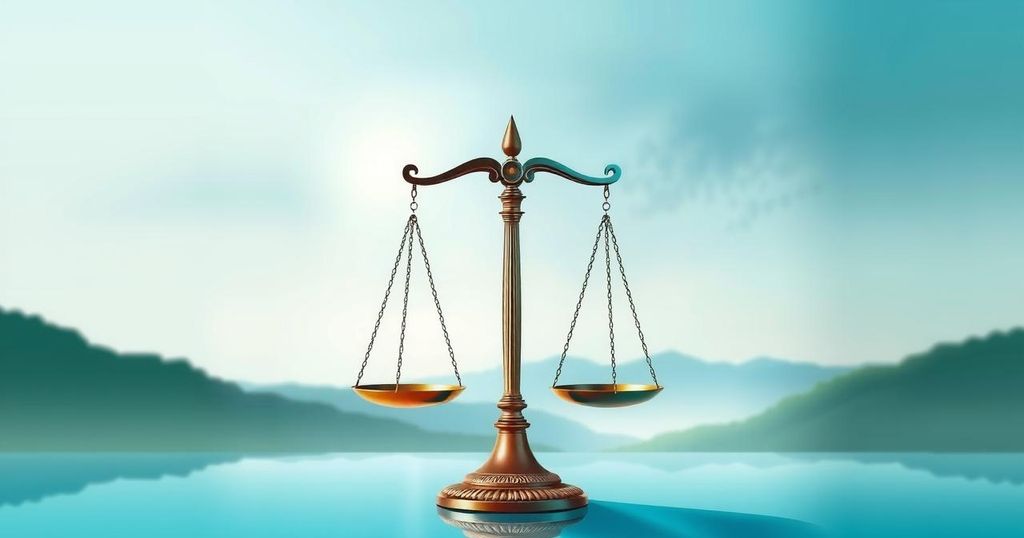Lawsuit Brings Hope for Justice in Death of Dutch Journalist in El Salvador War

Gert Kuiper seeks justice for his brother Jan, a journalist slain during El Salvador’s civil war, through a civil lawsuit against former military officer Reyes Mena. This legal action follows decades of impunity and highlights ongoing struggles against journalist killings globally. The case signifies hope for accountability in El Salvador as it coincides with a criminal prosecution related to the journalists’ deaths, marking a vital step toward confronting past injustices.
Gert Kuiper recalls receiving the devastating news of his brother Jan’s death while reporting on El Salvador’s civil war, an event that occurred over four decades ago. The shock was profound when he saw the news on television in a Madrid bar. The following day, he returned to the Netherlands, where every newspaper reported the tragic story of Jan and three fellow Dutch journalists. “It felt like a movie. It didn’t feel real,” Kuiper expressed.
Jan Kuiper was engaged in the production of a documentary for the Dutch television station IKON when he, along with three other journalists, was killed on March 17, 1982. Since then, legal obstacles have hindered accountability, revealing the persistent climate of impunity surrounding journalist killings globally. This situation reflects El Salvador’s struggles with the consequences of its civil war, which lasted from 1979 to 1992. At 71 years, Kuiper is now more hopeful than ever to attain justice for his brother.
In October, Kuiper initiated a civil lawsuit against Reyes Mena, a former Salvadoran military officer implicated by a United Nations truth commission for orchestrating the journalists’ murders. Mena, now aged 85, has resided in the United States for many years, while a district court in Alexandria, Virginia is determining whether to proceed with Kuiper’s lawsuit.
The civil lawsuit aligns with a criminal prosecution occurring in El Salvador, involving Mena and two other officials related to the journalists’ deaths. However, no trial date has yet been established. Notably, 75,000 civilians were killed during El Salvador’s civil war, with numerous deaths attributed to U.S.-backed government forces. After the war, a U.N. truth commission investigated cases, including that of the four Dutch journalists, which stands out as one of the war’s most significant cases, remarked attorney Daniel McLaughlin.
The truth commission’s findings, based on comprehensive interviews with Salvadorans, identified Mena as responsible for the killings. The journalists were murdered while attempting to reach areas controlled by leftist guerrillas opposing the Salvadoran Security Forces, with the killings occurring near a military base under Mena’s command. For decades, Kuiper’s family sought justice, facing numerous obstacles.
“I felt a moral obligation at least to try,” Kuiper conveyed about the struggles to seek justice for his brother. The previous amnesty law granted unconditional protection for all crimes committed during the civil conflict, posing significant barriers to accountability. Although such blanket amnesty laws are intended to foster national healing, they often obscure the past and hinder a society’s reconciliation efforts.
El Salvador’s Supreme Court declared the amnesty law unconstitutional in 2016, marking the first occasion that prominent military leaders face trial for civil war-era crimes. “This case could mean the rupture of historic impunity here in El Salvador,” remarked Oscar Perez from Fundacion Comunicandonos.
Experts have noted a perceived ease in advancing justice in this case due to the foreign nationality of the victims. In contrast, justice efforts in instances like the El Mozote massacre remain stalled despite the significant loss of thousands of civilians.
Legal hope lingers, as advocates believe that pursuing justice for this case could pave the way for broader accountability in El Salvador. The civil lawsuit is particularly vital since Mena is unlikely to be extradited for the parallel criminal case. McLaughlin emphasized, “The civil case is an opportunity to set the historical record straight.”
The legal complaint, citing the Torture Victim Protection Act, enables the families of victims of extrajudicial killings abroad to seek justice from perpetrators within U.S. jurisdiction. However, the American Justice Department, alongside El Salvador’s governmental departments, did not respond to requests for comments.
The prominence of this lawsuit mirrors ongoing global concerns about the impunity surrounding journalist murders, as reported by the Committee to Protect Journalists, which states that nearly 80% of journalist killings in the last decade remain unresolved. “Killing is the most extreme way of silencing a journalist,” stated Cristina Zahar from CPJ, underscoring the importance of accountability, even decades later.
Ultimately, while the U.S. lawsuit does not include potential imprisonment, Kuiper expresses that his primary desire is an official acknowledgment of the intentional nature of his brother’s killing. “It’s important to fight to the utmost to get an official acknowledgement,” he stated emphatically.
Gert Kuiper’s pursuit of justice for his brother Jan, a journalist killed during the Salvadoran civil war, emphasizes the persistent struggle against impunity for journalist killings globally. The ongoing civil lawsuit against Reyes Mena reflects years of family anguish and legal challenges. Kuiper’s efforts, bolstered by the recent constitutional ruling against amnesty laws, may pave the way for accountability and recognition of past atrocities in El Salvador. Ultimately, the case symbolizes the fight for truth and justice beyond borders, as highlighted by legal experts and advocates for human rights.
Original Source: www.voanews.com







